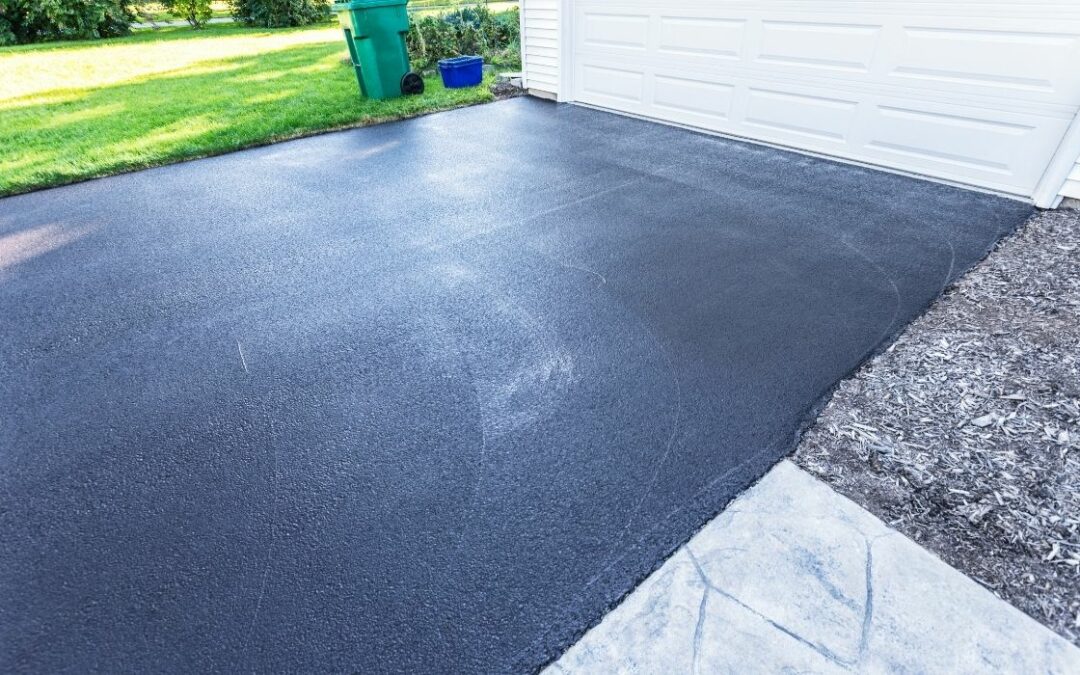Seal in High Quality: Specialist Solutions for Asphalt Repair and Sealing
Seal in High Quality: Specialist Solutions for Asphalt Repair and Sealing
Blog Article
Cold Mix Asphalt Vs. Hot Mix Asphalt: Which Is Right for You?

Make-up Distinctions
Cold mix asphalt is generated by emulsifying the asphalt binder with water and an emulsifying agent prior to blending it with accumulation. The hot mix asphalt manufacturing process includes warming the accumulation and asphalt binder independently before integrating them at the asphalt plant.
Moreover, cool mix asphalt often tends to be much less dense and more versatile than hot mix asphalt. This flexibility makes it far better matched for areas with greater degrees of movement, such as driveways or roads with heavy web traffic. On the other hand, warm mix asphalt is recognized for its high durability and resistance to rutting and fracturing, making it a favored option for freeways and high-traffic roadways where long life is important.
Installation Refine Variations
The procedure of installing cold mix and warm mix asphalt exhibits noteworthy variations in their requirements and treatments. Cold mix asphalt, being an extra adaptable material, can be used directly from the bag or container onto the pocket or damaged location. It needs very little preparation job, such as cleaning the area and compacting the chilly combine with hand tools. This makes it a practical option for quick and momentary fixes. On the other hand, warm mix asphalt necessitates a much more fancy installment process. It involves heating the mixture to heats before laying it down on an appropriately ready base. The preparation includes condensing the base, using a tack layer, and utilizing hefty equipment like pavers and compactors for a smooth and durable coating. As a result of the heating requirements, hot mix asphalt setups are usually accomplished by professionals with specific equipment, ensuring an extra permanent and structurally audio result.
Longevity and Longevity Aspects
When taking into consideration asphalt options, toughness and longevity are critical factors to evaluate for lasting pavement efficiency. Hot mix asphalt (HMA) is recognized for its exceptional sturdiness and longevity.
In terms of durability, HMA usually exceeds CMA as a result of its exceptional toughness and resistance properties. HMA pavements have a longer life span, calling for less constant repairs and maintenance, which can translate to cost financial savings in the lengthy run. In addition, HMA sidewalks are extra easily customizable to satisfy details task demands, further improving their durability.
Expense Factors To Consider
Considering the monetary ramifications is a critical element when evaluating the option in between warm mix asphalt (HMA) and cool mix asphalt (CMA) for sidewalk projects. While the first price of warm mix asphalt is normally higher than that of cool mix asphalt, HMA dig this typically gives a much more affordable solution in the lengthy run due to its remarkable sturdiness and durability.
In addition to product prices, it's necessary to take into consideration the costs associated with installation and maintenance when contrasting HMA and CMA. Inevitably, the decision in between HMA and CMA ought to take right into account not simply the initial price but also the long-term financial ramifications to determine the most cost-efficient option for the particular sidewalk task.
Environmental Effect Contrast
Contrast of the ecological impacts between hot mix asphalt (HMA) and cool mix asphalt (CMA) reveals distinctive distinctions in sustainability methods. HMA manufacturing calls for high temperatures, leading to enhanced power usage and greenhouse gas exhausts.
Furthermore, using CMA often includes reusing existing asphalt sidewalk, promoting resource conservation and lowering the quantity of waste her comment is here sent to land fills. This reusing element additionally improves the sustainability of CMA contrasted to HMA. Overall, when thinking about the environmental effect, CMA becomes an extra ecologically lasting choice due to its lower power needs, lowered emissions, and the possibility for recycling existing products. By deciding for CMA over HMA, road construction tasks can add positively to environmental conservation initiatives.
Verdict
Finally, the choice in between cool mix asphalt (CMA) and warm mix asphalt (HMA) depends on various variables such as make-up, setup process, resilience, long life, expense, and ecological impact. angle parking. While CMA uses a quick and cost-efficient option for small repair services, HMA guarantees premium sturdiness and longevity for hefty traffic areas. Take into consideration these elements very carefully to figure out which kind of asphalt is the best selection for your paving requires

Considering the economic ramifications is a vital aspect when assessing the choice between hot mix asphalt (HMA) and cool mix asphalt (CMA) for pavement tasks. While the preliminary cost of hot mix asphalt is generally higher than that of cold mix asphalt, HMA often supplies an extra economical solution in the lengthy run due to its superior durability and long life. asphalt repair.Contrast of the ecological influences between warm mix asphalt (HMA) and cool mix asphalt (CMA) exposes distinct distinctions in my sources sustainability practices.In conclusion, the selection in between cold mix asphalt (CMA) and warm mix asphalt (HMA) depends on different aspects such as make-up, installment process, sturdiness, longevity, price, and environmental effect
Report this page